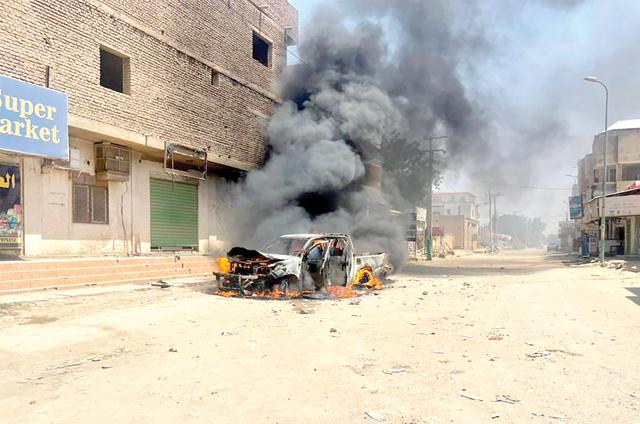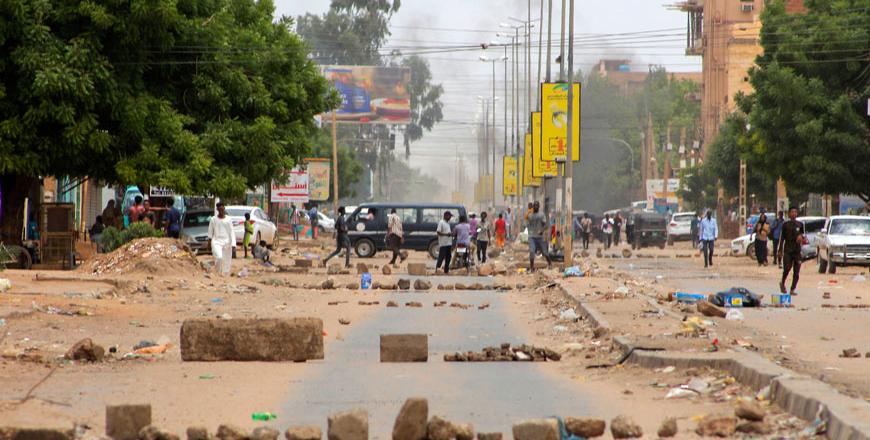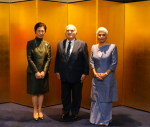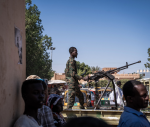You are here
Sudan's Hawsa people block roads after deadly tribal clashes
By AFP - Jul 19,2022 - Last updated at Jul 19,2022

This photo taken on Monday shows a view of a burning vehicle in the wake of clashes in Sudan's eastern city of Kassala, close to the border with Eritrea (AFP photo)
KHARTOUM — Thousands of Sudan's Hawsa people set up barricades and attacked government buildings in several cities on Monday, witnesses said, after a week of deadly tribal clashes in the country's south.
Violence in Blue Nile state, bordering Ethiopia, has killed 60 people and wounded 163 others, including 13 in serious condition, according to health officials.
The clashes first erupted a week ago on Monday between the Berti and Hawsa tribes, after the Bertis rejected a Hawsa request to create a "civil authority to supervise access to land", a prominent Hawsa member told AFP on condition of anonymity.
But a senior member of the Bertis had said the tribe was responding to a "violation" of its lands by the Hawsa.
Troops were deployed in Blue Nile on Saturday, and since then an uneasy calm has prevailed there although tensions have escalated elsewhere.
In the eastern city of Kassala, the government banned public gatherings after several thousand Hawsa people "set government buildings and shops on fire", according to eyewitness Hussein Saleh.
“It’s panic in the city centre,” Kassala resident Idriss Hussein told AFP by telephone. He said protesters were “blocking roads and waving sticks”.
In the city of Wad Madani, some 200 kilometres south of Khartoum, “hundreds of Hawsa people put up stone barricades and burned tires on the main bridge to block traffic”, resident Adel Ahmed told AFP.
Experts say a military coup led by army chief Abdel Fattah Al Burhan in October 2021, has created a security vacuum that has fostered a resurgence in tribal violence, in a country where deadly clashes regularly erupt over land, livestock, access to water and grazing.
Pro-democracy activists have accused Sudan’s military and ex-rebel leaders who signed a 2020 peace deal of exacerbating ethnic tensions in Blue Nile for personal gain.
The Hawsas, also known as Hausa, are one of the largest ethnic groups in Africa, with tens of millions of members living in several countries.
There are three million Hawsas in Sudan, where they largely follow the majority religion of Islam, but speak their own native language rather than Arabic.
They mostly live off agriculture in Darfur, Al Jazira state and in the eastern states of Kassala, Gedaref, Sennar and Blue Nile.
Related Articles
KHARTOUM — Police fired tear gas in Sudan's capital Khartoum on Sunday against hundreds of anti-coup protesters who also called attention to
KHARTOUM — At least 31 people have been killed in clashes this week between two tribes in Sudan's Blue Nile state bordering Ethiopia,
KHARTOUM — Thousands of Sudan's Hausa people protested in multiple cities on Tuesday, demanding justice for dozens of comrades killed















